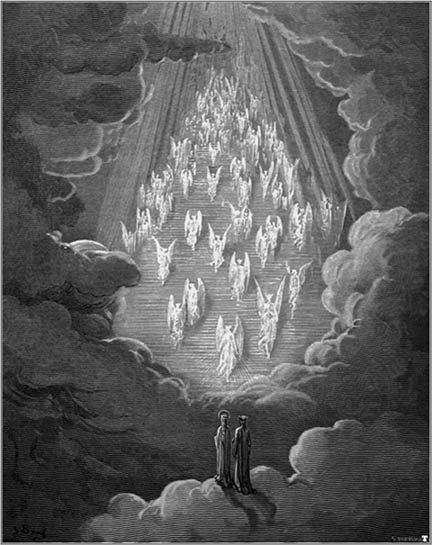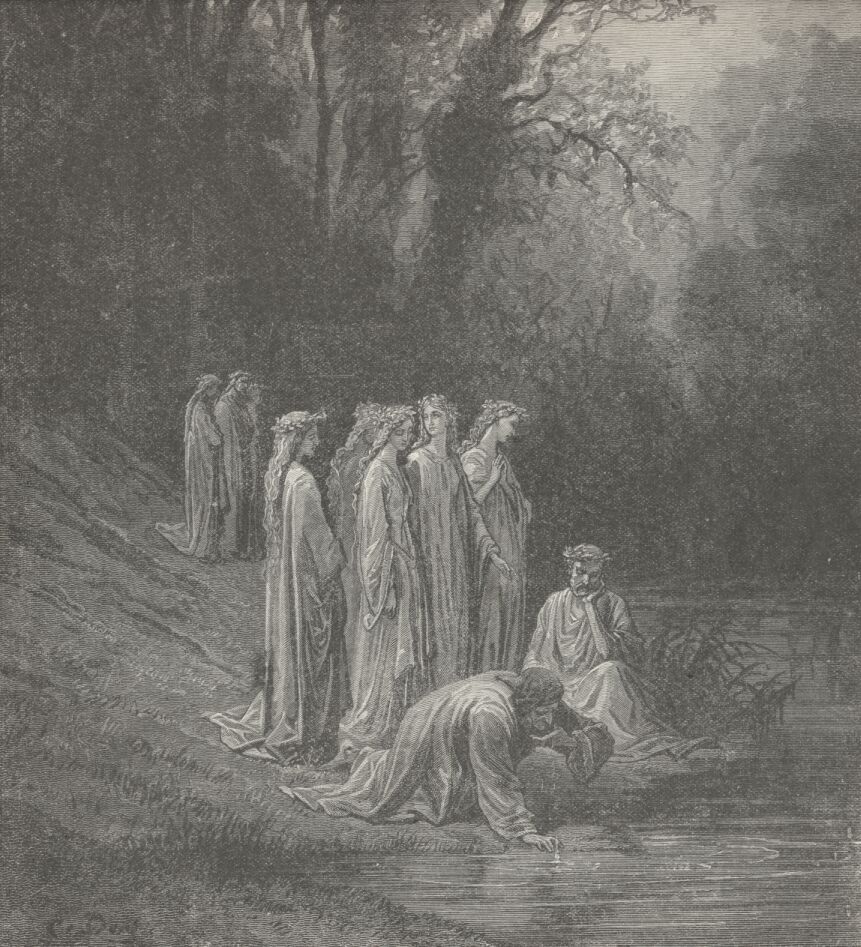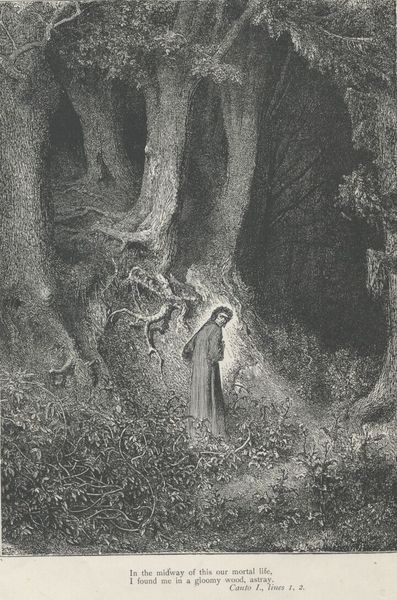The Perennial Philosophy
Describing the Universality and consistency of the process of direct knowledge gained
through the illuminating experience of a momentary union with the Mind of God.
All human beings are fundamentally aware of the necessity of their own evolutionary return
to the singular eternal reality of Universal Mind. The Perennial Philosophy attests
to the dramatic experience of this compelling necessity.
The constancy of a philosophy which is reappearing, resurfacing and renewing itself throughout all time, traversing a broad spectrum of cross-cultural recipients, must surely be of consequence for us today, being beset as we are by conflicting theories, beliefs and constantly changing opinions about almost everything. Heeding the bewildering advice of experts in the field of health alone would keep one in a constant state of life style changes and choices.
Seeking stability in our current society, we surely may consider a philosophy which has earned the name "Perennial," described as
...the metaphysic that recognizes a divine Reality behind the world of things and lives and minds; the psychology that finds in man something identical with divine Reality and the ethic that places man's final end in the knowledge of the Immanent and Transcendent Ground of all things.
The phrase Philosophia Perennis is used to describe a philosophy formulated by those who have experienced direct communion with God. This contact, however brief, transformed the thinking mind of the experiencer during the moment of contact, so that he was never the same again.
These revelatory experiences, captured in the lisping symbols of human language and repeated throughout the ages by persons of all races, genders, cultures and religious beliefs, comprise the Perennial Philosophy, becoming the title of a book by Aldous Huxley written almost half a century ago. Better yet, Mr. Huxley might have called his anthology ofsupreme mystics' literature The Perennial EXPERIENCE.
The universality of mystical experience comprises a fabric of eternity
within the framework of time.
Again and again the veil of materiality was rent for a moment and the light of direct experience forever dispelled the mistaken certainties of these mystics whose words we shall borrow. As we browse through the bookstore of today, with shelves bulging with self-help advice from metaphysicians, M.D.s, psychologists, psychiatrists and experts of every description, do we not long for something that has stood the test of time, that for a moment came from "out of time," so to speak, something not couched in the current popular jargon of the day – "wounded inner child; codependent; dysfunctional family," etc. Is there not something eternal on which we can depend? Don't we sense that identifying ourselves in such a limited way holds no permanent answer?
Huxley's anthology of mystical utterances validates and verifies in the mind of the reader that moment in which he knew himself to be more than just a constructed perception of himself in time; that moment when his knowing and feeling were no longer "occupied and filled with a foul stinking lump of himself," as the author of The Cloud of Unknowing so vividly described it. The alert reader will recognize in the words of the Sufi saint, the Zen or Mahayana Buddhist, the Indian guru, the Taoist, the Moslem, the Hindu, or the Christian mystic a description of that transcendental moment of his own brief realization of the vastness of his being.
Are the timeless words of the mystics of value today? We answer with an emphatic Yes! There are many who, caught up in the web of complexity surrounding any discipline today, deem extrication too remote, or, even if possible, doled out to a select and special few. Like squirrels in cages, we are caught up in the ever-expanding division, specialization, addiction to knowledge, and never-ending analysis of any subject; sick of having our carefully learned or constructed theories blown apart by a new "authority" who is, next day, contradicted by yet another equally authoritative voice. Darwin expressed this frustration when he said,"It is a cursed evil to any man to become so absorbed in any subject as I am in mine." Professionally, in relation to his chosen specialty, a man may be completely mature. Spiritually, he may be hardly more than a fetus!
Whether we yearn for a new birth or for a brief respite from our workaday world, let us follow for a moment the path laid out by these Perennial Philosophers, these vessels of receptivity who no longer saw "through a glass darkly," but through panes made clear by innocence, and became filled with powers, knowing and joys from something beyond ordinary consciousness and their previous conditioning; for here is direct evidence that all humanity has unrealized capacities for self-transcendence and that the limits of consciousness are not fixed.
The Perennial Philosophy-Experience is best expressed by the Sanskrit phrase That Thou Art, meaning the immanent eternal self is realized as one with the absolute principle of all existence and that the ultimate destiny of every human being is to discover this fact for himself, to find out who he really is.
Here are the words of some who saw that they were "That":
ST. CATHERINE OF GENOA:
My Me is God, nor do I recognize any other except my God Himself.
BYAZID OF BISTUM:
I went from God to God, until they cried from me in me, ‘O Thou I!’
YUNG-CHIA-TA-SHIH:
The inner Light is beyond praise and blame; like space, it knows no boundaries,
yet it is even here, within us, ever retaining its serenity and fullness.
It is only when you hunt for it that you lose it. You cannot take hold of it,
but equally, you cannot get rid of it.
MEISTER ECKHART:
The more God is in all things, the more He is outside them; the more He is within,
the more without. Only the transcendent, the complete other, can be immanent without being changed by the becoming of that in which it dwells.
The question comes: What is the "That" to which the "Thou" (I) can discover myself to be? "It is a Spiritual Absolute, susceptible of being directly experienced and realized by the human being in whom God is incarnate but who believes himself only able to exhibit God within the limitations necessarily imposed by confinement within a material body born into the world at a given moment in time."
ST. BERNARD:
Who is God? I can think of no better answer than He who is.
Nothing is more appropriate to the eternity which God is.
If you call God good, or great, or blessed or wise, or anything else of this sort,
it is included in these words, namely, He is.
RUYSBROECK:
In the Reality unitively known by the mystic…
we can speak no more of any creature but only of one Being…
There were we all one before our creation, for this is our super-essence.
As these words recall a forgotten familiarity within us, the question naturally arises,"How do I achieve that inner certainty that I am 'That'?"
With unwavering unanimity of knowing, the answer echoes down since
beginningless time, ever repeated, not only by these mystics, but by every saint,
seer, and religion,"Surrender the Sense of a Separate Self!"
The absolute obstacle to unitive knowledge of God is man's obsessive consciousness of and insistence on being a separate self. To the extent that there is attachment to "I," "me," "mine," there is no attachment to, and therefore, no unitive knowledge of God, no escape from the stifling prison of selfness and separateness.
Hold on to nothing, says ST. JOHN OF THE CROSS in these words:
The soul that is attached to anything, however much good there may be in it,
will not arrive at the liberty of divine union… held by the bonds of human affections, however slight they may be, we cannot, while they last, make our way to God.
WILLIAM LAW:
Men are not in hell because God is angry with them…
they stand in the state of division and separation which by their own motion,
they have made for themselves…
Your own self is your own Cain that murders your own Abel. For every action and motion of self has the spirit of Anti-Christ and murders the divine life within you.
We must live so that every moment is deemed a crisis, leading either to self's way of death and darkness or towards light and life; between interests temporal and the eternal order; between our personal will or the Will of God. At one moment I am eternal, at another time I am in time.
As HUXLEY says:
We pass from time to eternity when identified with the spirit and pass again
from eternity to time when we choose to identify with the body.
As PHILO puts it:
They are on the way to truth who apprehend God
by means of the divine, Light by the Light.
From the BUDDHISTS:
The Bodhisattva perceives that his existence in time is due to memory
that has been accumulated since the beginningless past.
The Chinese interpret the Sanskrit word "Memory" as Habit Energy; explained as those remembered habits formed either in our present life or in previous existences which cause us to believe that multiplicity (separateness) is the sole reality and "I," "me," "mine" represent the ultimate truth.
The MAHAYANA BUDDHISTS admonish:
There must be a conversion of the Mind – a revulsion in the very depths
of consciousness by which the habit energies of accumulated memories
are destroyed and along with them the sense of being a separate ego.
So with these few quotations we see that, as ALBERTUS MAGNUS cogently puts it: "If thou desirest a safe stair and short path to arrive at the end of true bliss," there must be a dying to self – a mortification not only of the appetites, the feelings and the will but also of the reasoning powers, of consciousness itself and of that which makes our consciousness what it is – our personal memory and our inherited habit energies.
In summary, the words of HUXLEY seem apt:
We are on a return sweep towards a point corresponding to our starting place in animality, but incommensurably above it. Once more life is lived in the moment.
The life now of a being in whom love has cast out fear, vision has taken the place
of earthly hope, selflessness has put a stop to the positive egotism of complacent reminiscence and the negative egotism of remorse.
"The present moment is the only aperture through which the soul can pass out of time into eternity, through which grace can pass out of eternity into the soul, and through which love can pass from one soul in time to another soul in time."
As we seek to live each moment as crisis, living between two worlds and dying daily to the little separate "i" self made up of our habit energies, we may be assured of our oneness with these mystics of all ages and of our success in this endeavor by the words of the modern mystic, JOEL GOLDSMITH, as he says:
I am in union with the divine Intelligence of the past, the present and the future.
No spiritual secret is hidden from me… There is this transcendental Being within me which I am and to which I have access forever. This means omnipresence now of what we call the past and what we call the future. I am living in the Omnipresence now.
I am now in the Consciousness of all who have ever lived, are living now, and ever will live in the divine Consciousness, for we are one. That infinite divine Consciousness
of God, the Consciousness of the past, and the present and the future, is my consciousness at this moment.
|
The glory of Him who moveth everything |
 |
|
From that most holy water, I returned |
 |
|
Midway upon the journey of our life |
 |
The Divine Comedy of Dante Alighieri, Translated by L G
White, Illustrations by G. Doré
